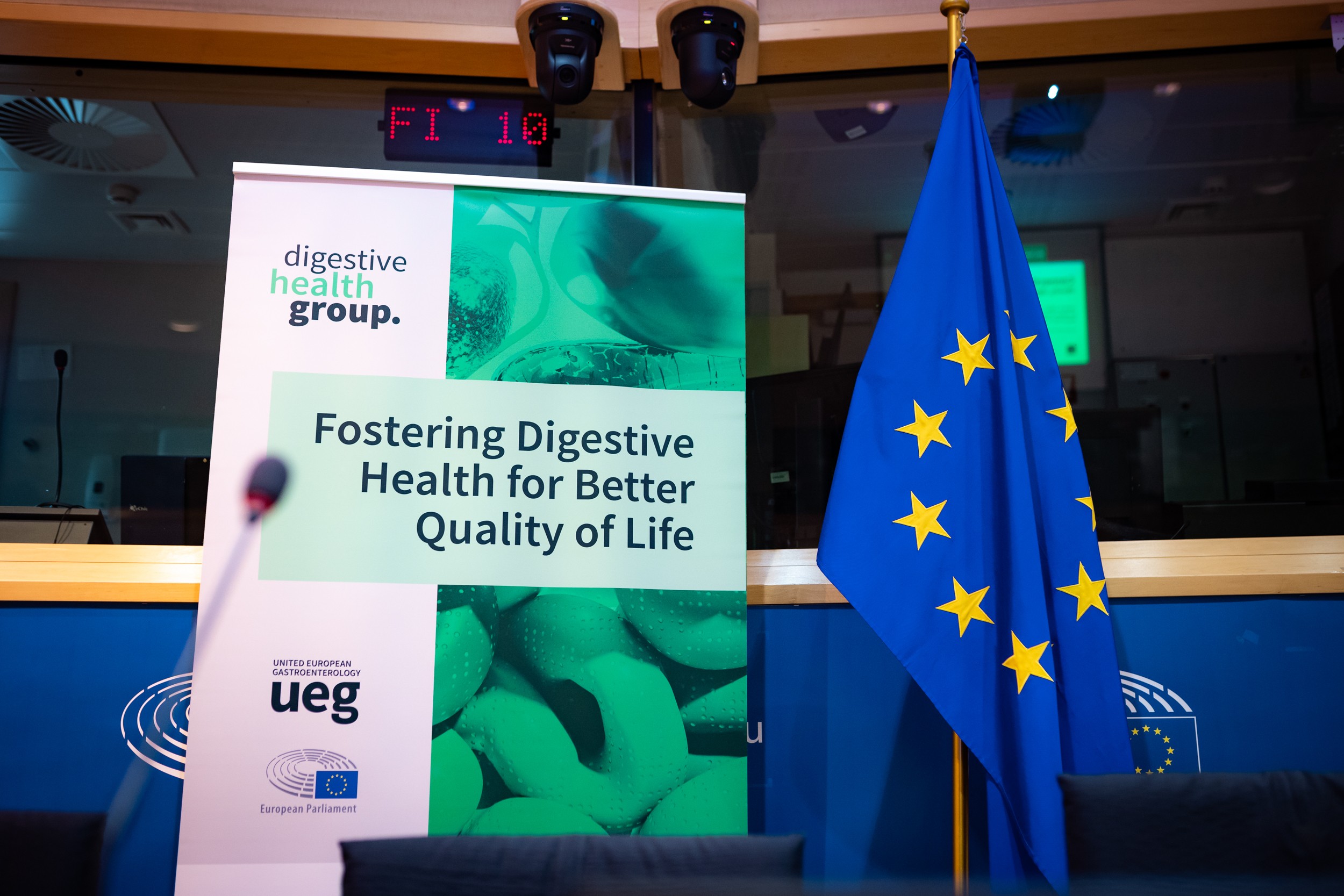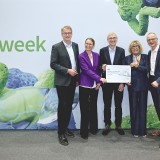- WHO (2022). WHO European Regional Obesity Report 2022. https://iris.who.int/bitstream/handle/10665/353747/9789289057738-eng.pdf
- WHO (2021). Monitoring noncommunicable disease commitments in Europe 2021: are we on track to reach targets 10 years after the Moscow Declaration and First United Nations High-Level Meeting? https://www.who.int/europe/publications/i/item/WHO-EURO-2021-4479-44242-62494
- European Union (2022). Healthier Together. EU NCD Initiative. https://health.ec.europa.eu/system/files/2022-06/eu-ncd-initiative_publication_en_0.pdf
- European Commission (2020). Europe’s Beating Cancer Plan. https://commission.europa.eu/strategy-and-policy/priorities-2019-2024/promoting-our-european-way-life/european-health-union/cancer-plan-europe_en
- WHO (2022). WHO European Regional Obesity Report 2022. https://iris.who.int/bitstream/handle/10665/353747/9789289057738-eng.pdf
- Galea, G., Ekberg, A., Ciobanu, A. et al. (2025). Quick buys for prevention and control of noncommunicable diseases. The Lancet Regional Health – Europe, 52, 101281.
- Rose, T. C., Pennington, A., Kypridemos, C. et al. (2022). Analysis of the burden and economic impact of digestive diseases and investigation of research gaps and priorities in the field of digestive health in the European Region—White Book 2: Executive summary. UEG Journal, 10(7), 657–662.
- Wang, S., Zheng, R., Li, J., et al. (2024). Global, regional, and national lifetime risks of developing and dying from gastrointestinal cancers in 185 countries: A population-based systematic analysis of GLOBOCAN. The Lancet Gastroenterology & Hepatology, 9(3), 229–237.
- WHO (2021). Obesity. https://www.who.int/news-room/facts-in-pictures/detail/6-facts-on-obesity

Obesity is fuelling a rise in digestive diseases and cancers across Europe, particularly among those under 50, where stigma and low awareness often delay early detection. On 5 June, United European Gastroenterology (UEG) convened policymakers, clinicians, patient advocates, and public health leaders at the European Parliament for Connecting the Dots: Obesity, Digestive Diseases and Cancers – a pivotal meeting to forge a unified response to the growing burden of obesity, digestive diseases, and cancer.
Seizing the Moment
MEP Romana Jerković, Chair of MEP Digestive Health Group, opened the event with stark World Health Organization (WHO) statistics: nearly 60% of Europeans and one in three children are overweight or obese.1 She stressed that obesity is not just personal, but shaped by broader societal factors. While recent ICD (International Statistical Classification of Diseases and Related Health Problems) updates mark some progress, she warned that prevention remains chronically underfunded. “Investing in prevention is not only good health policy”, she said. “It’s smart economics and politics.” Calling for binding, citizen focused measures, she urged, “We need real, cross-party momentum. The cost of inaction is simply too high. Let’s seize this moment.”
MEP Alessandra Moretti of the Progressive Alliance of Socialists and Democrats (S&D) highlighted that non-communicable diseases (NCDs) account for 90% of EU deaths2 yet receive only 2.8% of health budgets for prevention.3 She called for systematic screening and health checks, noting how sedentary lifestyles, poor diets, and pollution worsen health inequalities. Citing the 2020 Beating Cancer Plan and the EU’s €4 billion oncology investment,4 Moretti urged for prevention and research to become primary priorities.
WHO Calls for Urgency and Realism
Dr. Kremlin Wickramasinghe, Regional Advisor for Nutrition, Physical Activity and Obesity at WHO Europe, delivered the keynote address. He emphasised that obesity is now the leading cause of disability in Europe and a proven driver of cancer, contributing to an estimated 20,000 new cases each year.5 He pointed the audience toward WHO’s “quick buys” for the prevention and control of NCDs, which is a set of interventions shown to produce measurable health improvements within five years.6 However, he warned that commercial interests and health system barriers continue to delay implementation.
Dr. Wickramasinghe also cautioned against seeing GLP-1 therapies as a panacea, stressing the need for enforceable, system-level policies over fragmented, voluntary approaches.
Making the Link: Obesity and Digestive Health
Professor Patrizia Burra, Chair of the UEG Public Affairs Group, opened the floor to four illuminating presentations that demonstrated the clear link between obesity and digestive health.
Professor Patrick Michl of the European Pancreatic Club (EPC) reminded the audience that over 300 million Europeans already live with digestive diseases.7 Digestive cancers account for nearly one-third of cancer deaths, with colorectal, pancreatic, and stomach cancers making up almost 20% of new cases.8 Forecasts predict a rise in their incidence, driven not just by ageing but by modifiable risk factors, chief among them obesity. He called for primary prevention strategies targeting alcohol use, smoking, socioeconomic disparities, and, above all, excess weight.
Professor Thomas Seufferlein of the European Society of Digestive Oncology (ESDO) detailed how obesity actively fuels carcinogenesis through chronic inflammation, altered tumour microenvironments, and direct “crosstalk” between fat and cancer cells. He cited WHO data that in 2021, obesity accounted for approximately 2.8 million deaths from NCDs,9 and highlighted the hidden risk of visceral adiposity, even in normal-weight individuals. He offered hope amidst these alarming statistics: bariatric surgery and other weight-loss interventions have demonstrated significant cancer risk reductions.
Dr. Jorge Amil Dias of the European Society for Paediatric Gastroenterology, Hepatology and Nutrition (ESPGHAN) stressed that childhood obesity sets the stage for lifelong digestive and metabolic disease. “Children make up a small share of the population, but they are 100% of our future”, he said. “Rising childhood overweight and obesity will shape the health of the generation that supports our workforce, our pensions, and our healthcare systems.” Dr. Amil Dias championed the “first 1,000 days” as a critical window for nutritional intervention, noting that small differences in early protein intake can have substantial, long-term effects. However, he urged that prevention extend beyond individual families to encompass societal level policies and coordinated education efforts.
Professor Volkan Demirhan Yumuk, President of the European Association for the Study of Obesity (EASO), outlined four key paradigm shifts needed in obesity care:
- Using person-first language (e.g. “people living with obesity” rather than “obese people”)
- Recognising obesity as a chronic, multifactorial disease
- Managing obesity like other NCDs, with a focus on weight maintenance and health benefits, not just weight loss
- Embracing multidisciplinary teams to deliver medical evaluation, treatment and follow-up; medical nutrition therapy to ensure appropriate nutrition to avoid micronutrient deficiencies, preserve muscle performance, and manage obesity related complications; aerobic exercise for cardiovascular conditioning; resistance exercise to preserve muscle performance; and behavioural interventions and psychological support to maintain wellbeing
Panel Discussion: From Knowledge to Action
Professor Burra transitioned the parliamentary event into a panel discussion focused on the key question: How can public health policies effectively address obesity and digestive health?
- MEP Ignazio Marino (Greens/European Free Alliance) advocated for broader access to effective treatments such as semaglutide and emphasised the importance of comprehensive EU-wide studies on adolescent mental health, lifestyle, and behaviour
- MEP Tomislav Sokol of the European People’s Party stressed that obesity is a societal concern, not an individual failure. He called for a comprehensive, all-of-society approach at the EU level, like the model used in tobacco control
- Former European Commissioner for Health and Food Safety, MEP Vytenis Andriukaitis (S&D), delivered a powerful speech, asking, “Who is representing the food industry?” He stressed the need to include industry voices in prevention discussions and called for decisive action against food industry lobbying, including EU-wide excise duties on unhealthy products
- Dr. Patrizia Carrieri of the European Association for the Study of the Liver (EASL) stressed that obesity is driven by structural factors like food marketing and inequality, while stigma discourages healthcare engagement and raises avoidable costs. She called for systemic policy action on environment, stigma, and social disparities to reduce obesity’s burden
- Professor Yumuk called for regulation and enforcement, arguing that voluntary measures have consistently failed to deliver results
- Milan Mishkovikj of the European Liver Patients’ Association (ELPA) shared a deeply personal story of his mother’s late-diagnosed liver disease, urging early screening and public awareness
- Dr. Natasha Münch of Digestive Cancers Europe (DiCE) emphasised that prevention is only part of the picture. She highlighted the lack of structured weight management following cancer treatment and called for psycho-oncology to become a standard component of survivorship care
Voices from the Frontlines
An open Q&A gave the floor to voices from the Association of European Cancer Leagues (ECL), Foodwatch, and the European Coalition for People Living with Obesity (ECPO). Policymakers were challenged to “act as guardians” for children, not bystanders to industry influence. They called for greater accountability and urged the EU to combine hard data with lived experience, particularly from those living with chronic, relapsing conditions like obesity. Speakers highlighted persistent barriers, from the dramatic 2020 budget cut to the EU4Health programme, to Member States’ reluctance to adopt mandatory regulation on front-of-package food labelling and marketing.
From Dialogue to Policy
MEP Jerković closed the energetic gathering by reminding attendees that, “Statistics are never just numbers; they represent lives and destinies: our partners, colleagues, and children.” She called on policymakers to move beyond dialogue and to “draw the lines” by turning science into enforceable policy.
“This is only the beginning”, she explained. “Today we started connecting the dots. Now we must act.”
-
References
-
Contact
If you have any questions, please contact Anna Carboni, Public Affairs & Advocacy Manager at UEG.
Email: [email protected]
Phone number: +43 699 1997 16 74




Please log in with your myUEG account to post comments.